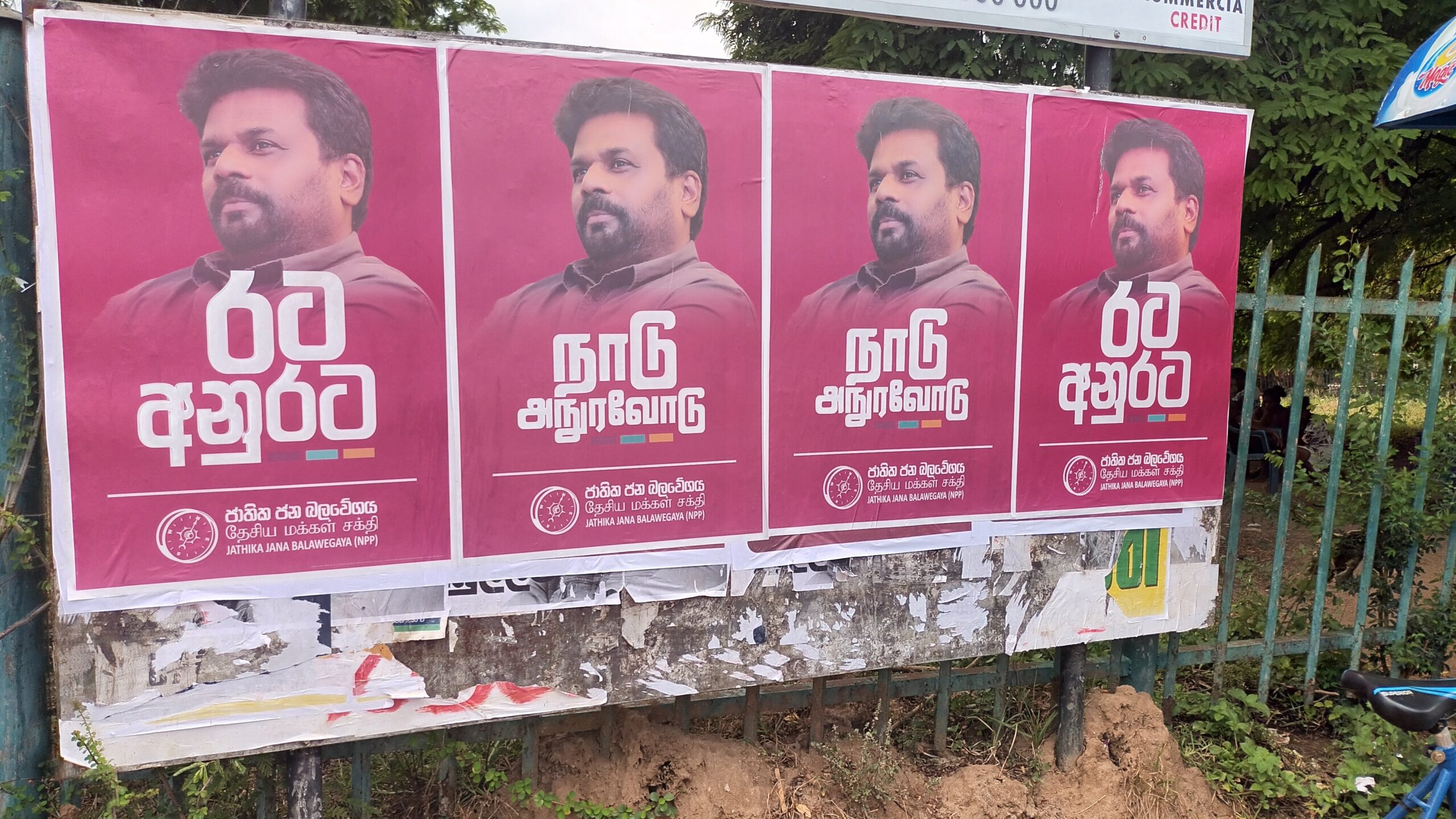A new president for Sri Lanka?

Sri Lanka’s ninth presidential election ended without enthusiasm. Apart from the National People’s Power, other political parties hardly campaigned from door to door. Apart from a few main rallies, other parties did not hold rallies in several villages as they used to do. In such a quiet atmosphere, the ninth presidential election of Sri Lanka was held on 21 September 2024.
The Janata Vimukthi Peramuna led the National People’s Power in the presidential election. Anura Kumara Dissanayake of the National People’s Power will be known as the first candidate to win a presidential election in Sri Lanka with less than 50% of the vote. The total number of votes he received was 42.31%. The overall results were as follows
- Anura Kumara Dissanayake (National People’s Power): 5,634,915 votes or 42.31%.
- Sajith Premadasa (Samagi Jana Balawegaya): 4,363,035 votes or 32.76%.
- Ranil Wickramasinghe (Independent): 2,299,767 or 17.27% votes
- 1,021,899 votes for all other candidates or 8.66%.
However, Anura Kumara received a very limited number of votes from areas where minority groups such as Tamils, Muslims and Tamils of Indian origin live. This can be seen from the following figures of his results:
- Jaffna 7.29%.
- Vanni 9.86
- Trincomalee 20.83
- Batticaloa 12.19
- Ampara 25.74
- Nuwara Eliya 22.17%.
With the exception of Jaffna and Vanni, approximately one third of the population of these districts belong to the Sinhalese ethnic group. These figures show that the minority groups do not trust Anura Kumara and are suspicious of his actions.
On the face of it, Anura Kumara’s victory appears to be a victory for the oppressed class of Sri Lanka. This is because in the 70 years since Sri Lanka’s independence, the ruling power has been the legacy of the upper property-owning class, and Anura’s victory has reversed the balance of power between the two traditional parties. Anura Kumara Dissanayake is not a member of an elite family, but the child of a rural farming family. The main force of his political movement is the Janata Vimukti Peramuna (JVP), which led two rebellions in 1971 and 1987/89, organised by Sinhalese, Buddhists, rural farmers and youth to vent their anger against Sri Lanka’s ruling class. In this sense, there are people who look at Anura Kumara’s victory superficially and call it a victory of the oppressed people.
Is Anura’s victory really a victory for the oppressed class of Sri Lanka? This is a question that should be thoroughly discussed by the Marxists and the oppressed people. They themselves declared that Anura’s party was a party working under the guidance of Marx-Engels-Lenin etc. But it was accepted by the international Marxist movements that it was a non-Marxist movement – a petty capitalist movement – that displayed photos of Marx-Engels-Lenin and wore red clothes only on May Day.
Anura’s National People’s Power has had very close relations with the rich people of Sri Lanka since 2022. When these rich men come to the NPP meetings and tell Anura Kumara that socialism is an outdated concept, the JVP comrades listen in silence. In addition, the technical and bureaucratic regime that runs the state structure and the military, are behind him in his journey. In the past he has had close relations with the US ambassador to Sri Lanka, Julie Chung, as well as with senior Indian government officials and IMF representatives. They have tacitly accepted that the solution to Sri Lanka’s economic crisis is to implement the IMF’s proposals by not opposing the Economic Transformation Act and the Public Finance Management Act, which former President Ranil Wickramasinghe introduced into parliament at the behest of the IMF. Anura’s future course is clear. Thus, the defeated President Ranil could declare that “Anura will lead Sri Lanka on a path of continued growth and stability”.
In this situation, the factors that led to Anura’s victory should also be examined. One important issue is the struggle against the 2022 Sri Lankan regime. It was declared that the curse of 74 years had to be removed – corrupt family politics had to be wiped out – all 225 members of parliament had to go home, etc. It was a public awakening against the neo-liberal disaster. It led to the collapse of the government. The president – the prime minister and the cabinet – resigned. The ruling SLPP party was torn apart. This was evident in the 2024 presidential election when the majority of MPs deserted it and joined Ranil.
The Sri Lanka Freedom Party and the Podujana Peramuna, which broke away from it, were seen as Sri Lanka’s traditional left-leaning parties. Anura’s victory was guaranteed by the fact that most of the Podujana Peramuna MPs joined Ranil’s right wing campaign. Those who voted for the Podujana Peramuna, which is a left-wing party, turned to the NPP, which is seen as another left-wing party. The UNP, the party of the traditional capitalist class, split the votes between Ranil and Sajith. While the MPs of the Podujana Peramuna joined Ranil, only a small part of their electorate voted for Ranil.
Now that Anura is president, a major problem he will face is cleaning up the corrupt system of government. There is no telling how much support he will get from the bureaucracy that has gathered around him. The extent to which the people around him are corrupt is also a problem. At the same time, it will be very hard on the oppressed of Sri Lanka in the context of the fact that it has been confirmed that the IMF programme will continue. Until then, Anura will be able to enjoy the honeymoon of victory. However, political activists expect Anura to become another Hugo Chavez, who will not be able to fulfil the hope because he is not prepared to break with capitalism.